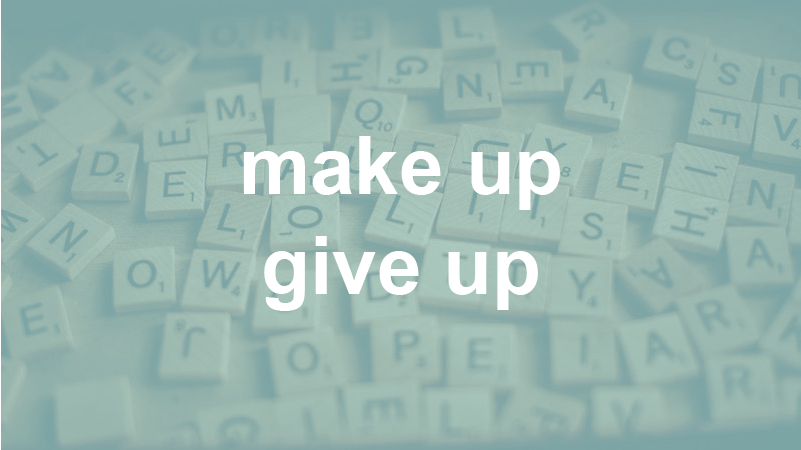Episode #3 of the course “Common English phrasal verbs: Part 2” by Angela Boothroyd
make (something) up
To make up something (or make something up) is to invent a story or excuse. This can be something written or said in order to deceive (a lie), or a story or game to entertain.
Examples of use:
a) He made up lies about me.
b) The politician said that the newspaper reporter made up the information about her expenses claim.
c) The children made up a wonderful game about dragons and kings and queens.
d) It’s wrong to make up stories about people.
give up
1. If you give up something (or give something up) that is bad for you (for example alcohol, smoking, and eating fatty foods) you stop doing it or having it.
Examples of use:
a) Eric gave up smoking two years ago.
b) We’re trying to lose weight so we’ve given up eating cakes.
c) He had to give up drinking alcohol because it made him ill.
2. To give up something (or give something up) is to stop doing a job, or something else you do regularly.
Example of use:
He gave up work to look after his children.
3. To give up something (or give something up) is also to stop doing something because it is too difficult for you to continue.
Examples of use:
a) I gave up learning English because I was too busy with work and my family.
b) He wanted to finish the marathon but he had to give up after ten miles.
c) She had to give her job up because her elderly mother was ill.
4. To give up is to stop trying to think of the answer to a question or problem, or a joke.
Examples of use:
a) I give up. I don’t know the answer. Tell me what it is.
b) I gave up trying to remember the date of my friend’s birthday, and asked her mother instead.
Recommended book
“Amazingly Easy Phrasal Verbs!” by George Sandford
Share with friends



